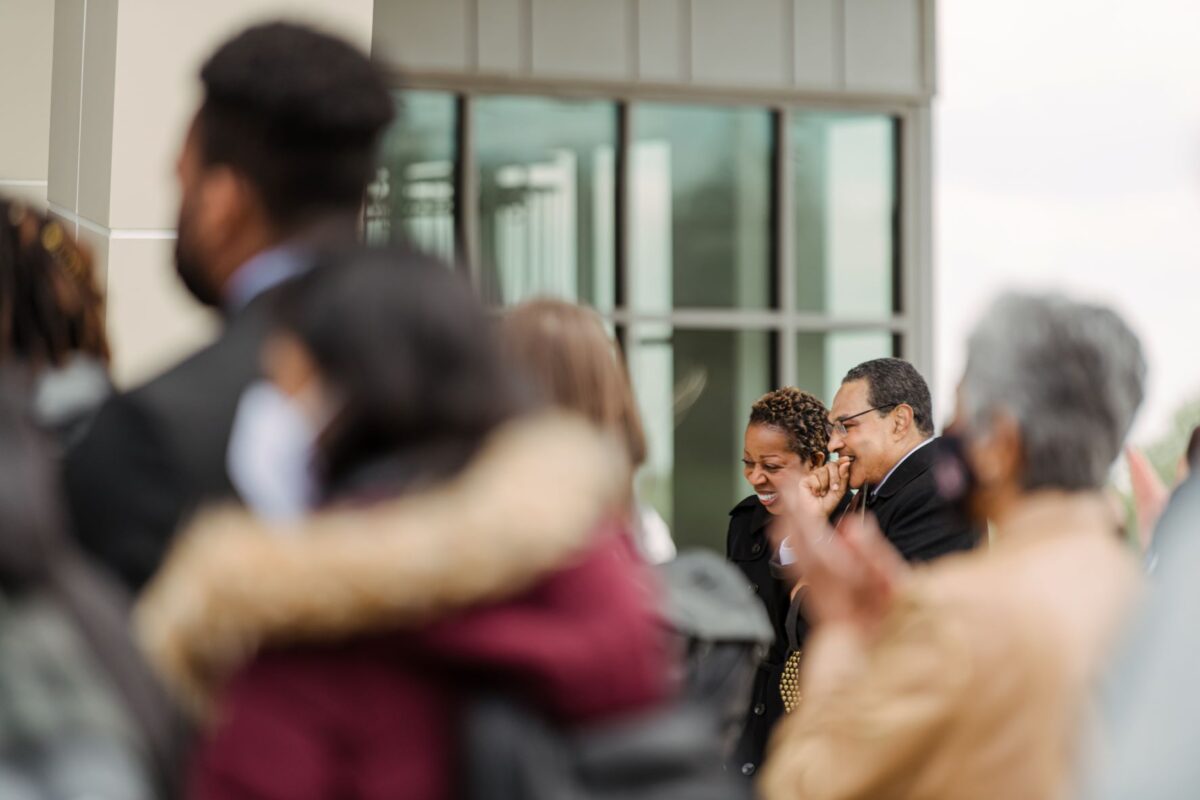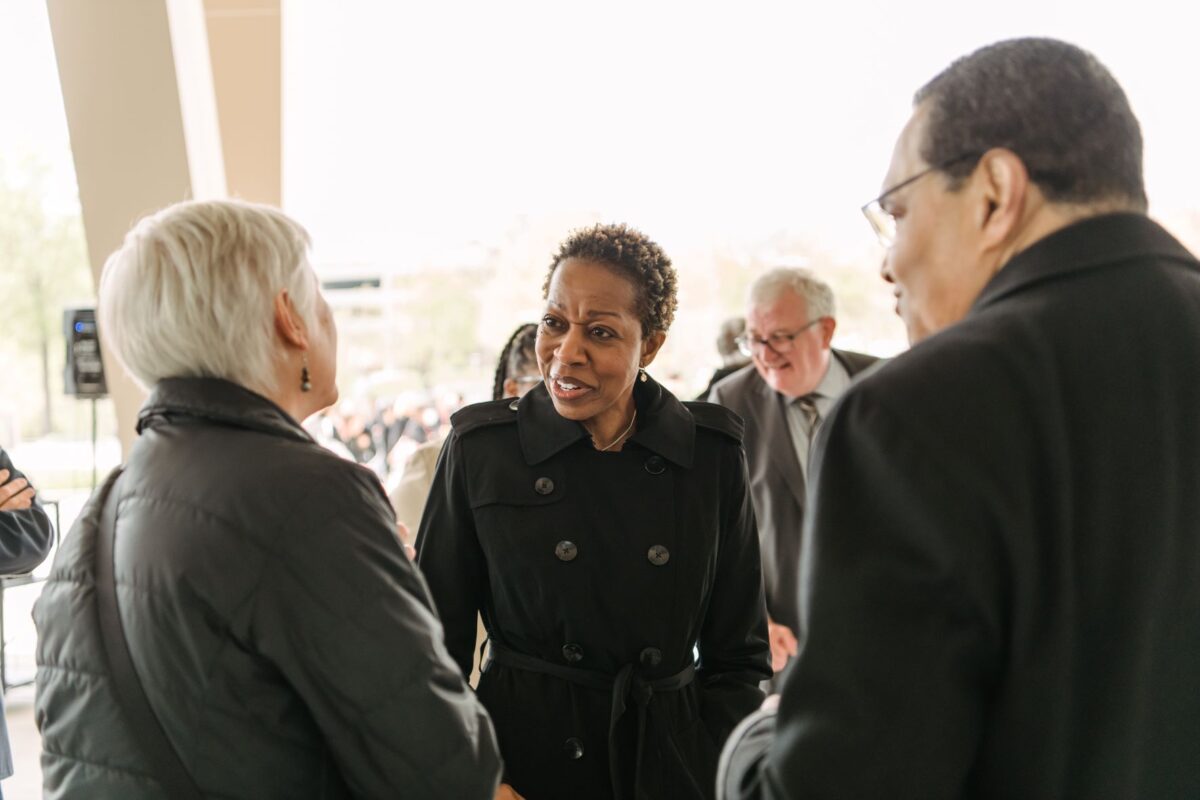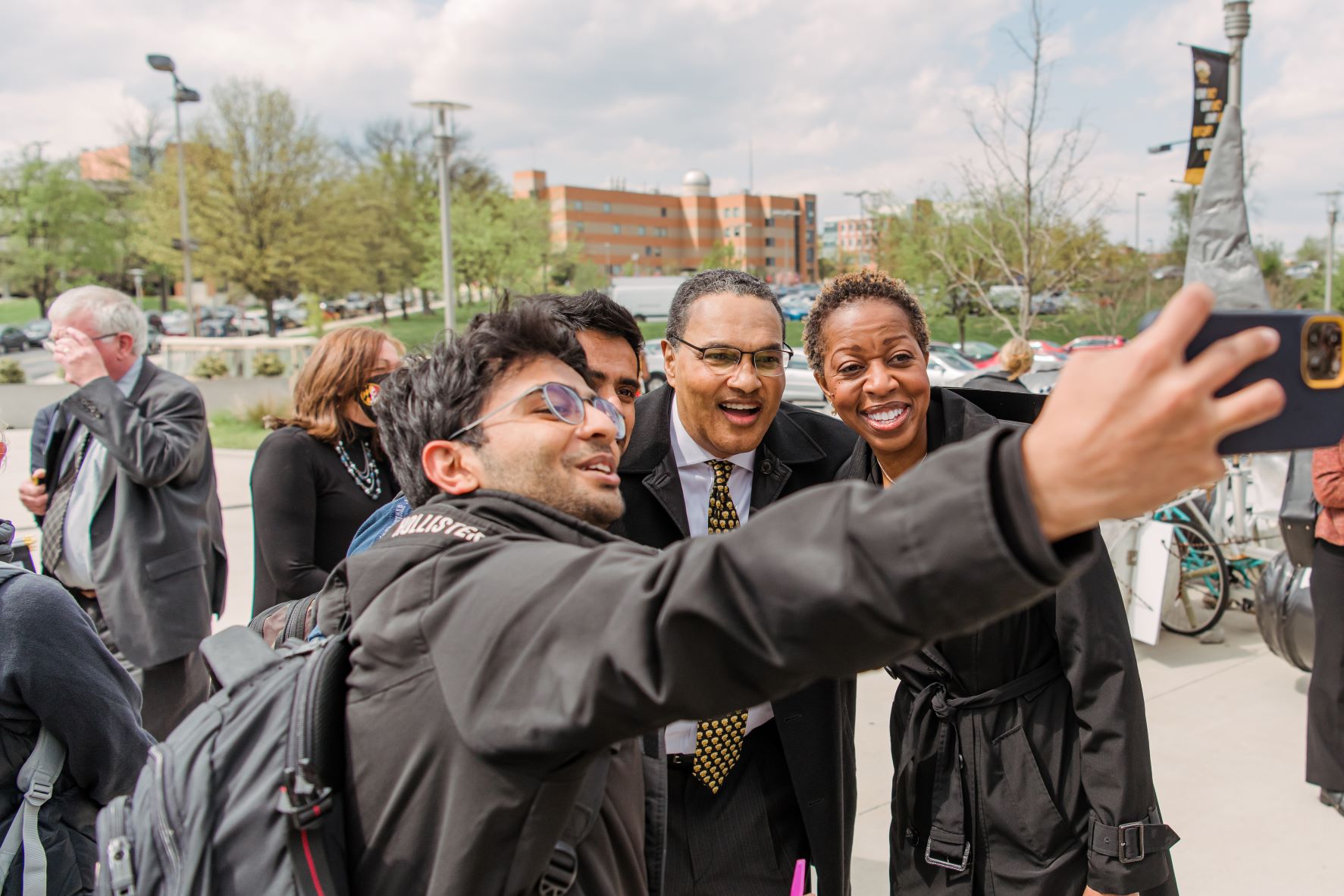In the newly-released Chronicle of Higher Education report “Diverse Leadership for a New Era,” Valerie Sheares Ashby shares a powerful story of mentorship. Years ago, when Sheares Ashby was a professor of chemistry at University of North Carolina at Chapel Hill, she came to UMBC for the first time to learn about the Meyerhoff Scholars Program. After meeting Sheares Ashby and seeing how others responded to her leadership, even in those early days, UMBC President Freeman A. Hrabowski turned to her and said, “You’re going to be a president.”
It was the same prediction that Hrabowski’s predecessor, Michael K. Hooker, made to him years before. For Sheares Ashby it will become a reality on August 1 when she begins as UMBC’s next president.
Positive impact
Like Hrabowski three decades before her, Sheares Ashby wasn’t sure what to make of the idea at first, but the comment inspired her to think in new ways about a leadership career. She loved teaching and says, to this day, “I am a teacher at heart.” But she also came to see how she could positively affect the lives of more students through university leadership.
As her career progressed, she assembled a team of mentors, including former UNC-Chapel Hill Chancellor Holden Thorp, who is now editor-in-chief of Science. Much of the new Chronicle report focuses on the essential role of mentors in supporting leaders, particularly from underrepresented groups.

Advocacy and community
Beyond mentors, President Hrabowski notes in the report, are champions. “A champion will knock down doors for you,” he says. “When people tell you no, the champion will say, ‘We don’t accept no.’ When you want to quit, it takes a champion to say, ‘No, you won’t.’”
Effectively supporting the development of diverse leaders also takes the right community, Hrabowski notes. At UMBC, the diverse faculty members teaching the diverse students are led by a diverse administration, Hrabowski explains. “You put that team together and you see how they approach problems from very different perspectives,” he says, “and it makes for a very rich conversation.”

Through these rich conversations, universities can find the best ways to support their students, carry out high-impact research, and foster the ongoing growth of their community members—all essential elements of their mission.
The full report is available through The Chronicle of Higher Education.

